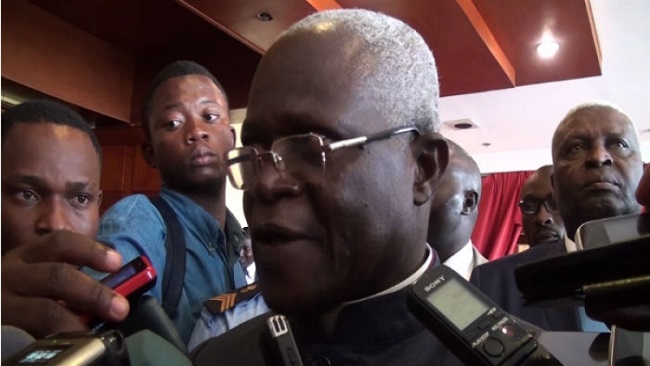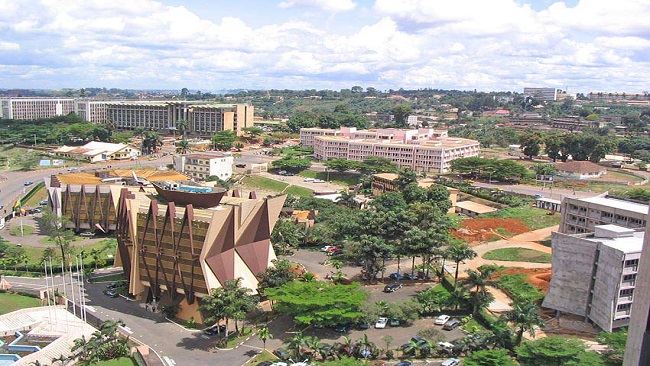19, November 2024
Biya regime fires 1,100+ public servants for absenteeism 0
The government has dismissed 1,172 public servants, including civil servants and state employees, according to a statement released on Monday, November 18, by the Minister of Public Service and Administrative Reform (Minfopra), Joseph Le.
The latest round of sanctions adds to the previous 1,981 dismissals and 424 terminations, bringing the total number affected to 3,577. The statement explains that these decisions were made under decrees issued on October 7, 1994, defining the general civil service statutes, as amended by the decree of October 12, 2000, and a decree from November 9, 1978, specifying common provisions for state employees under the labor code.
The sanctions stem from a physical headcount operation, known as Coppe, launched in 2018 to identify and remove irregularly listed employees from state payrolls. Irregularities were often due to unexplained absences, resignations, or unreported deaths. The operation is expected to conclude in 2025, at which point all identified personnel will be removed from the civil service, following the President’s directive in the 2025 budget circular signed on October 23, 2024.
Joseph Le revealed that the dismissed and terminated employees are part of a broader group of 8,766 public agents at risk of disciplinary action. Despite repeated notices from the Ministers of Finance and Public Service, only 601 individuals responded to requests for clarification, with some attending hearings with the Permanent Public Service Discipline Council.
Following disciplinary procedures, some personnel were reinstated, while others were terminated for submitting fraudulent documents “intended to mislead the administration.” At the start of 2024, numerous public employees remained suspended from payroll for unexplained absences, including 2,326 teachers flagged as absent following a call for reporting by Secondary Education Minister Nalova Lyonga.
Minister Le emphasized that this “significant operation” aligns with President Paul Biya’s directives to combat chronic absenteeism among public servants. In July, Le warned that any public employee absent for 30 consecutive days would face immediate dismissal or termination. “If a public servant fails to be at their post for 30 days, they simply merit dismissal or termination. Many other measures are stipulated in the Civil Service Statute and related regulations. Salaries are compensation for work performed, not work to be done. Absenteeism and indiscipline must end,” he stated after a cabinet meeting on July 25.
The Coppe operation, conducted between April and June 2018 by the Ministry of Finance, identified and removed 10,000 fictitious employees from the payroll, generating an annual budget saving of approximately 30 billion CFA francs in 2019, according to Finance Minister Louis Paul Motaze.
Source: Sbbc


























19, November 2024
EU to invest CFA 60bn in key infrastructure projects in Cameroon 0
As part of the second phase of the Multiannual Indicative Program (MIP) 2025-2027, the European Union (EU) has announced it will mobilize €91 million (around CFA60 billion) to fund infrastructure projects in Cameroon. This initiative seeks to support the country’s economic and social development, strengthen key sectors, and promote regional integration within Central Africa. The announcement was made during the third session of the Economic and Technical Dialogue on the Cameroon-EU partnership, which took place on November 14, 2024, in Yaoundé.
Among the projects benefiting from this funding are two major initiatives: the construction of a bridge over the Ntem River between Cameroon and Equatorial Guinea, and the extension of Cameroon’s railway network to Chad. Other key projects include the Yaoundé bypass road, which aims to reduce traffic congestion in the capital, and the Kikot hydroelectric project, which will strengthen the national power supply.
“These strong commitments from the European Union, in the form of grants and budget support, aim to accelerate the completion of key infrastructure projects and reinforce structural reforms for better public financial management and enhanced competitiveness for Cameroon,” stated the Ministry of Economy’s communication service.
The EU is already involved in funding major projects that are transforming Cameroon’s infrastructure. One example is the Nachtigal hydroelectric dam (Central Region), which has a capacity of 420 MW. Supported by the EU, this project will provide nearly 30% of the electricity to the southern interconnected grid of Cameroon and play a key role in stimulating the country’s industrial growth. Another important project is the construction of the bridge over the Logone River, which will connect the Cameroonian city of Yagoua to the Chadian city of Bongor. Once completed, this bridge will provide a third official crossing point between the two countries, strengthening trade relations and contributing to sub-regional integration.
In addition to infrastructure projects, a significant portion of the discussions during this session of the Economic and Technical Dialogue focused on improving the business climate in Cameroon. The EU and the Cameroonian government are working to make the country more attractive to private investors by facilitating access to funding that supports entrepreneurship and stimulates economic activity. The EU plans to implement financial mechanisms through the Neighbourhood, Development and International Cooperation Instrument (NDICI-Global Europe) and the Global Gateway program. These initiatives will particularly target small and medium-sized enterprises (SMEs), especially in the infrastructure and energy sectors. Minister Alamine Ousmane Mey emphasized that the growth of the private sector is crucial for job creation and wealth generation. “A vibrant and productive private sector means more jobs, more wealth, and a better quality of life for the people. This is a priority for us, and through our cooperation with the European Union, we believe we will receive more support,” he said.
The announced funding is part of the MIP 2021-2027, which was officially launched in February 2022 in Yaoundé. The MIP is designed to structure and strengthen the EU’s response to the multiple challenges Cameroon faces, particularly in governance, democratic consolidation, peace, and stabilization. The program focuses on inclusive growth, with particular attention to the private sector, the creation of decent jobs, and environmental sustainability. The program spans seven years, with a solid commitment for the 2021-2024 period. The EU has allocated an additional CFA88 billion for the 2025-2027 period, with new priorities, including digitalization, which has been added as the fourth priority area of the program.
Source: Business in Cameroon